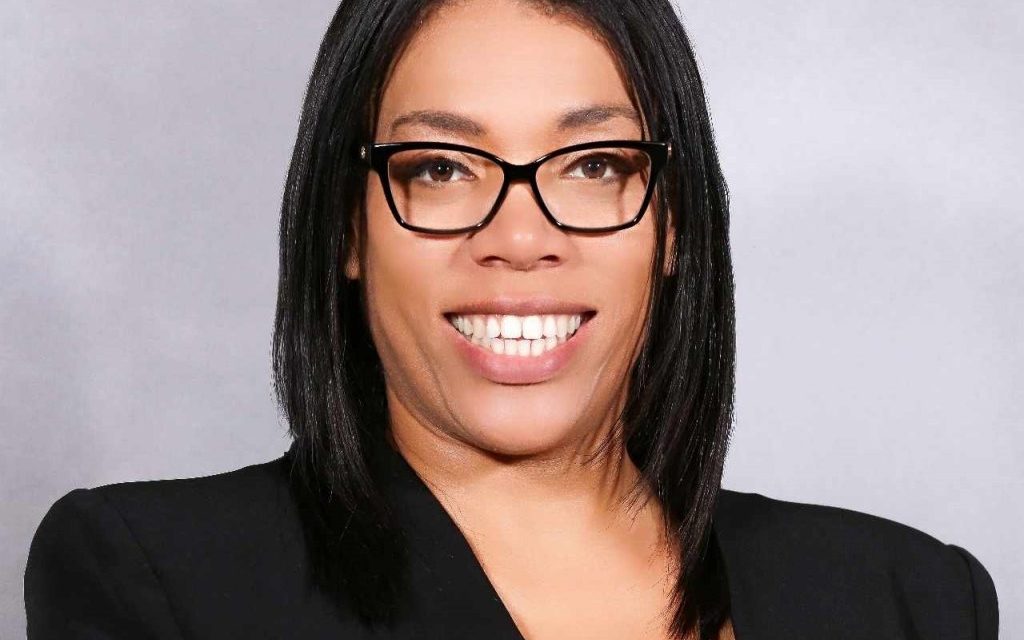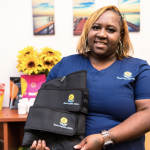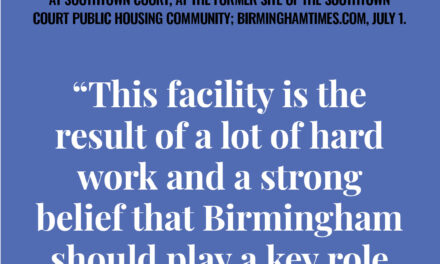By Chrissy M. Thornton
Recently, Associated Black Charities hosted one of its most complex and thought-provoking Community Convos to date, titled “Post-Election Family Meeting: What’s Next for the Black Community?” The idea was to create a space for honest reflection and strategy– no matter the election’s outcome. What unfolded was both frustrating and illuminating, revealing both the depth of our divisions and the potential for collective action.

The meeting was hybrid, with attendees joining in person and online. As I moderated the discussion, I was struck by the diversity of perspectives, including voices I didn’t anticipate—like unapologetic Black Trump supporters and individuals claiming racism doesn’t exist. Those moments were jarring. How could we, as a community deeply impacted by systemic racism, be so divided on its very existence?
The conversation started with reflections on the election’s outcomes and the emotions stirred by the results. One of our younger participants shared his disappointment with voter turnout and the choices some voters made – choices that, in his view, selfishly prioritized other interests over the well-being of marginalized communities. One attendee voiced frustration, lamenting how often Black voters must choose between “the lesser of two evils.” Another reminded us that people vote based on their immediate needs and interests.
Still, the Black community simply can’t afford to vote in ways that perpetuate harm to our own well-being, children, schools or neighborhoods. We must balance self-interest with a broader sense of community responsibility. That intra-community reckoning has to happen before we hold systems and structures accountable, doesn’t it? Walking away… I thought, maybe not.
One attendee pointed out the lack of listening to conservative voices within the Black community, urging greater inclusivity in our discourse. That’s a tough pill to swallow for those who feel betrayed by policies and ideologies tied to systemic harm. The right thing to do may very well be to not ignore these voices outright because of the risks of deepening divisions and missing opportunities for collaboration. But, I’m just not there. Right or wrong, I believe the work is urgent, and unfortunately, everyone can’t go.
Some people will resist the movement, and that’s okay. The work continues with those willing to build bridges and fight for a better future. Debating racism’s existence seems like wasted time. Recognizing the realities of systemic oppression is the first step toward dismantling it. I’ve settled on being completely OK with the facts: sometimes you have to leave out a few folks who seek to thwart progress – leave them both behind and in a position to “find out.”
The bright spot of the night was that many in the room did agree on key systemic issues that demand urgent attention. Education, healthcare and the over-incarceration of Black people topped the list. These parts of the conversation highlighted how structural racism continues to erode opportunities for Black communities, from poorly funded schools to ongoing discriminatory housing policies. One speaker emphasized the need to move beyond blaming individuals for their circumstances and instead address the systems that perpetuate inequity.
Another recurring theme was the importance of cross-generational dialogue. With five generations still in the workforce and in society, the need for understanding and collaboration has never been greater. Older generations bring hard-earned wisdom from past struggles, while younger voices offer fresh perspectives and energy. To truly move forward, we must embrace both and actively bridge the gaps that exist in communication and understanding.
One speaker encouraged attendees to “go back to their hoods” and engage directly with their communities. It’s easy to stay in comfortable spaces with like-minded people, but meaningful change happens when we step outside those bubbles and work across generational, socioeconomic and ideological lines. Another attendee took issue with the nomenclature “hood.”
As I reflect on the evening, one thing is clear: we must lay down unproductive conversation and focus on action. Associated Black Charities heard the frustrations, the hopes and the strategies that were shared. Our next steps include addressing systemic racism in concrete ways, such as shoring up our Agenda For Black Progress In Baltimore. Basically, we need to do what we’ve been doing, but even more unapologetically, with even more intensity and urgency, with even more intention, and with measurable and time-based goals and accountability, for ABC and for others.
To the Black community in Baltimore and beyond: stay engaged. To allies: listen, learn and amplify Black voices. And to those who may feel disillusioned: remember, progress has never come easily, but it has always been worth the fight.
Thankfully, this post-election moment is not the end of our story – it’s a chapter in the long continuum of Black liberation work. For those who are on the journey, let’s write the next one with purpose, unity and unwavering commitment to justice. For those who aren’t, congratulations on the next four years you chose to create – years that may not prioritize the needs of our community but will undoubtedly challenge our resilience and resolve. We’ll continue the work, with or without your support, and we will allow our gains to benefit you too – because our fight for equity and justice doesn’t pause for disagreement.
The post Commentary: Post-election reflections and a call to action: What’s next for our community? appeared first on AFRO American Newspapers.










